Global Forum on Migration and Development
The Global Forum on Migration and Development (GFMD) is a state-led, informal and non-binding process, which helps shape the global debate on migration and development. It provides a flexible, multi-stakeholder space where governments can discuss the multi-dimensional aspects, opportunities and challenges related to migration, development, and the link between these two areas. The GFMD process allows governments - in partnership with civil society, the private sector, the UN system, and other relevant stakeholders – to analyze and discuss sensitive issues, create consensus, pose innovative solutions, and share policy and practices.[1]
Official Logo | |
| Formation | 2006 |
|---|---|
| Type | Intergovernmental Process |
| Headquarters | Geneva, Switzerland |
Membership | Member States and Observers of the United Nations |
Official language | English, French and Spanish |
Host Country | United Arab Emirates (2020) |
Chair-in-Office | Nasser bin Thani Juma Al Hamli, Minister of Human Resources and Emiratisation, United Arab Emirates |
| Website | http://www.gfmd.org |
Background
The idea of creating a global consultative forum on Migration and Development was proposed by Mr. Kofi Annan, former Secretary-General of the United Nations (UN), at the first High-Level Dialogue on International Migration and Development (HLD) held on 14–15 September 2006 during the UN General Assembly. During the HLD, over 140 Member States discussed the interaction between migration and development, a complex relationship of growing importance in view of the increasing migration flows. Yet there was still a crippling lack of information and data and appropriate institutional structures and resources in many countries to achieve these; and importantly, there was no single, all-encompassing global forum to bring together policy makers on the two critical issues of migration and development. Some good practices were tried in a piecemeal way by governments and international agencies around the world, but these needed to be more widely understood and adapted, and more cooperative frameworks needed to be explored.
Reflecting the progressive acknowledgement of the limits of a strictly national approach to migration questions at a global level, there was widespread recognition and support in the UN at the HLD 2006 for an open and transparent dialogue on migration and development, in an informal, non-binding and state-led framework that would promote practical, evidence-based outcomes and cooperation between governments as well as non-government stakeholders.
From this idea, the GFMD was born, hosting its first Summit meeting in 2007 under the direction of the first GFMD Chair, Belgium. The GFMD has since remained as the largest informal, non-binding, voluntary and government-led process, bringing together expertise from all regions and countries at all stages of economic, social and political development. Since its inception, the GFMD has operated on the basis of a unique participative working method, involving governments and policy makers from a varied background. Policy-makers from a wide range of government agencies participate, including from Ministries and Departments of Immigration, Development, Labor, Foreign Affairs, Gender Equality, Home Affairs, Justice, Interior, Integration and Nationals Abroad.
Consistent with its state-led but not state only nature, the GFMD has also established formal links with other processes such as the GFMD Civil Society, the GFMD Business Mechanism and the Mayors Mechanism. These institutional links have allowed the inclusion of the voices and expertise of diverse stakeholders, including academia, NGOs, trade unions, the private sector, migrants and diaspora representatives as well as local authorities, in GFMD discussions.[2]
Objectives
.jpg.webp)
The objectives of the GFMD are:
- To provide a venue for policy-makers and high-level policy practitioners to informally discuss relevant policies and practical challenges and opportunities of the migration-development nexus, and engage with other stakeholders, including non-governmental organizations, experts and migrant organizations to foster practical and action-oriented outcomes at national, bilateral and international level;
- To exchange good practices and experiences, which can be duplicated or adapted in other circumstances, in order to maximize the development benefits of migration and migration flows;
- To identify information, policy and institutional gaps necessary to foster synergies and greater policy coherence at national, regional and international levels between the migration and development policy areas;
- To establish partnerships and cooperation between countries, and between countries and other stakeholders, such as international organizations, diaspora, migrants, academia etc., on migration and development;
- To structure the international priorities and agenda on migration and development.
Structure
Under the Operating Modalities of the GFMD adopted in 2007, the Forum meets every year for an inter-active and practice-oriented dialogue. It is attended by high-level and senior government policy-makers, and its deliberations are held under Chatham House Rules. A Report of Proceedings is prepared at the end of each Forum.
The supporting framework of the GFMD includes the following:
- The Chair-in-Office: The host government assumes responsibility for the preparatory process and the implementation of each Forum. The Chair also supervises the GFMD Support Unit. The current GFMD Chair is the Government of Ecuador.
- The Troika: composed of the outgoing Chair, the current Chair, and the forthcoming Chair.
- The Steering Group: composed of a smaller number of governments that are firmly committed to offer sustained political and conceptual support to the Forum process and to the Chair-in-Office, and to ensure continuity of the process. The Steering Group meets at regular intervals in Geneva to consider and advise on all relevant policy issues pertaining to the smooth running of the Forum process. It may also create thematic follow-up working groups.
Steering Group Members:[3]
- The Friends of the Forum: open to all UN Member States and Observers. It acts as a sounding board by ensuring that all Members States and Observers of the UN are kept abreast of Forum-related developments; and advises on the agenda, structure and format of the GFMD meeting. Friends of the Forum Meetings are held, in principle, at least twice in between each Forum meeting at a venue to be determined by the Chair-in-Office.
GFMD Governments:[4]
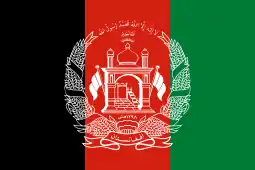 Afghanistan
Afghanistan Albania
Albania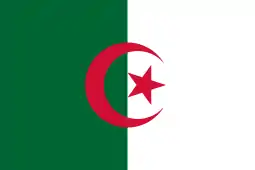 Algeria
Algeria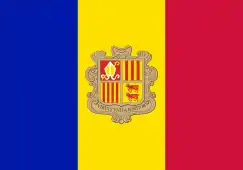 Andorra
Andorra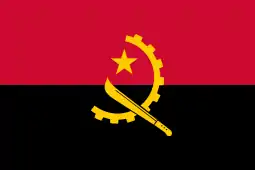 Angola
Angola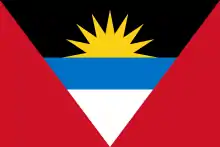 Antigua and Barbuda
Antigua and Barbuda Argentina
Argentina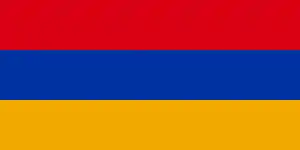 Armenia
Armenia.svg.png.webp) Australia
Australia Austria
Austria Azerbaijan
Azerbaijan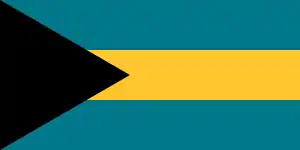 Bahamas
Bahamas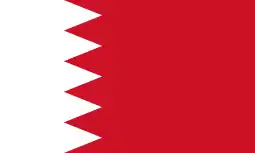 Bahrain
Bahrain Bangladesh
Bangladesh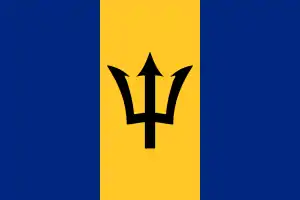 Barbados
Barbados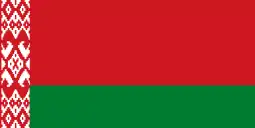 Belarus
Belarus Belgium
Belgium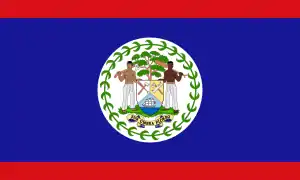 Belize
Belize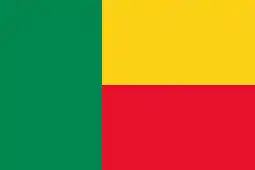 Benin
Benin Bhutan
Bhutan.svg.png.webp) Bolivia (Plurinational State of)
Bolivia (Plurinational State of)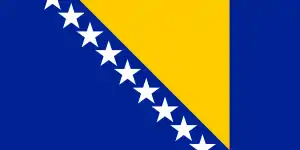 Bosnia and Herzegovina
Bosnia and Herzegovina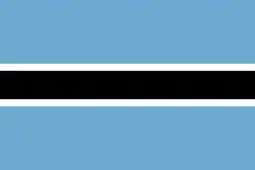 Botswana
Botswana Brazil
Brazil Brunei Darussalam
Brunei Darussalam Bulgaria
Bulgaria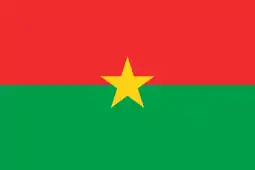 Burkina Faso
Burkina Faso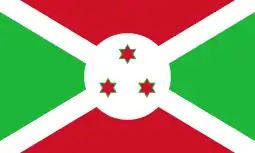 Burundi
Burundi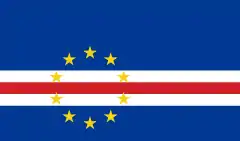 Cabo Verde
Cabo Verde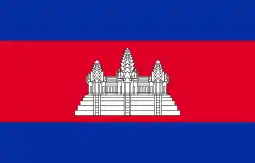 Cambodia
Cambodia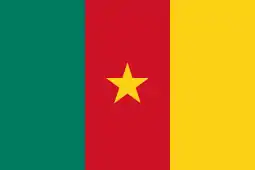 Cameroon
Cameroon.svg.png.webp) Canada
Canada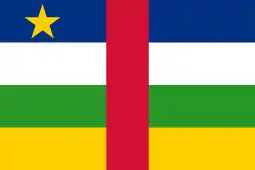 Central African Republic
Central African Republic Chad
Chad Chile
Chile China
China Colombia
Colombia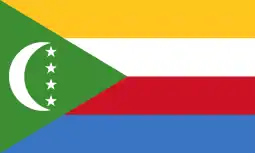 Comoros
Comoros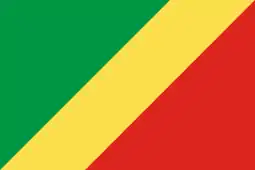 Congo
Congo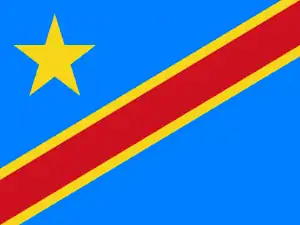 Democratic Republic of the Congo
Democratic Republic of the Congo.svg.png.webp) Costa Rica
Costa Rica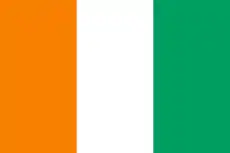 Côte d'Ivoire
Côte d'Ivoire Croatia
Croatia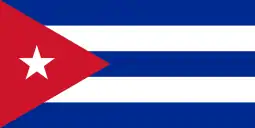 Cuba
Cuba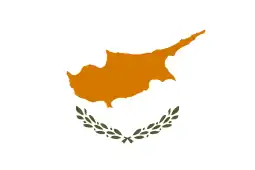 Cyprus
Cyprus Czech Republic
Czech Republic Denmark
Denmark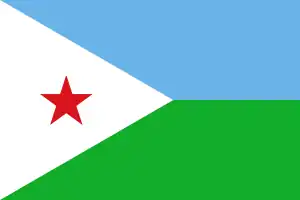 Djibouti
Djibouti Dominica
Dominica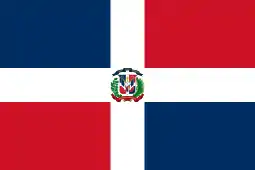 Dominican Republic
Dominican Republic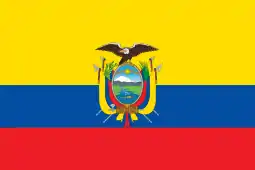 Ecuador
Ecuador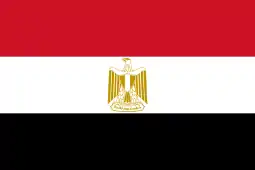 Egypt
Egypt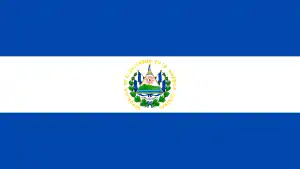 El Salvador
El Salvador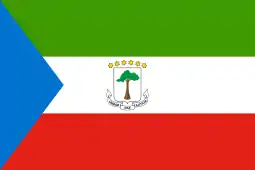 Equatorial Guinea
Equatorial Guinea Eritrea
Eritrea Estonia
Estonia Eswatini
Eswatini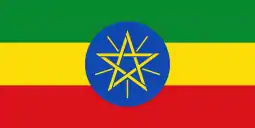 Ethiopia
Ethiopia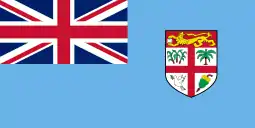 Fiji
Fiji Finland
Finland France
France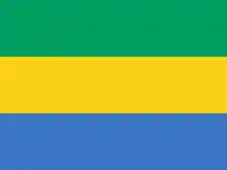 Gabon
Gabon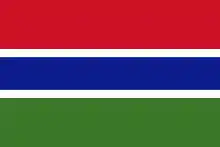 Gambia
Gambia Georgia
Georgia Germany
Germany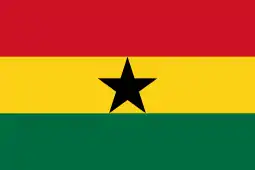 Ghana
Ghana Greece
Greece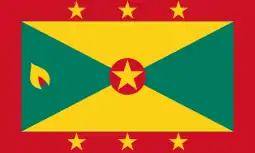 Grenada
Grenada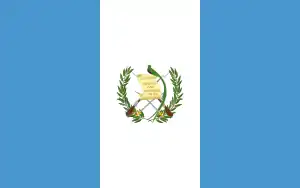 Guatemala
Guatemala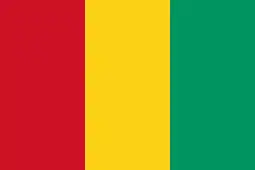 Guinea
Guinea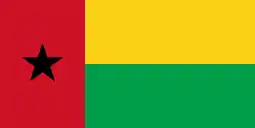 Guinea-Bissau
Guinea-Bissau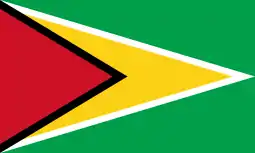 Guyana
Guyana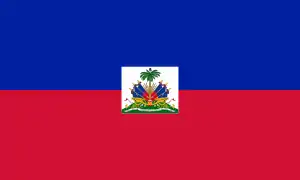 Haiti
Haiti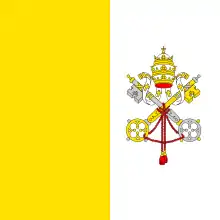 Holy See
Holy See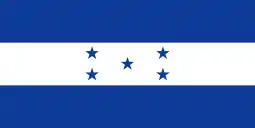 Honduras
Honduras Hungary
Hungary Iceland
Iceland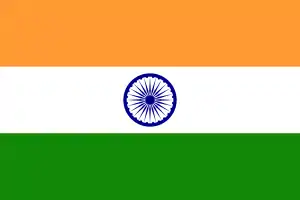 India
India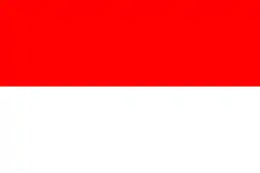 Indonesia
Indonesia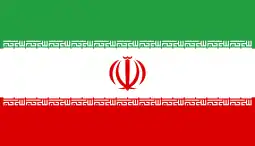 Iran (Islamic Republic of)
Iran (Islamic Republic of)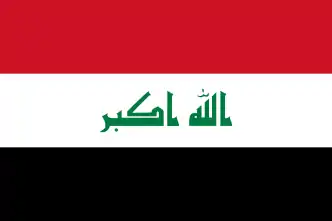 Iraq
Iraq Ireland
Ireland Israel
Israel Italy
Italy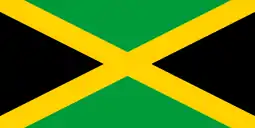 Jamaica
Jamaica Japan
Japan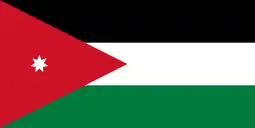 Jordan
Jordan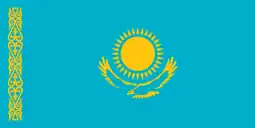 Kazakhstan
Kazakhstan Kenya
Kenya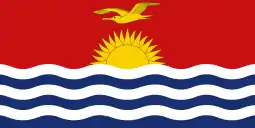 Kiribati
Kiribati South Korea
South Korea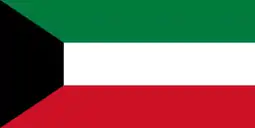 Kuwait
Kuwait Kyrgyzstan
Kyrgyzstan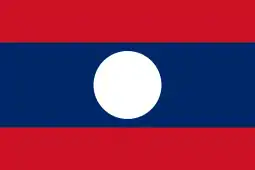 Lao People's Democratic Republic
Lao People's Democratic Republic Latvia
Latvia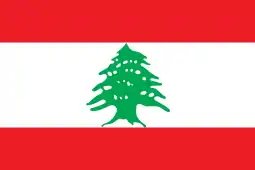 Lebanon
Lebanon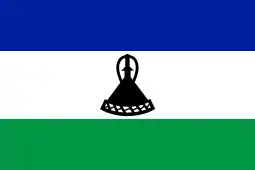 Lesotho
Lesotho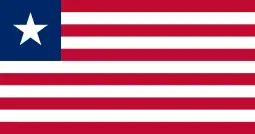 Liberia
Liberia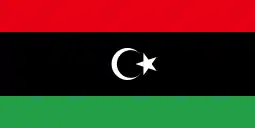 Libya
Libya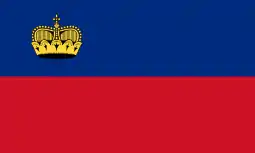 Liechtenstein
Liechtenstein Lithuania
Lithuania Luxembourg
Luxembourg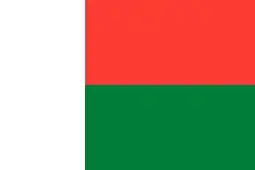 Madagascar
Madagascar Malawi
Malawi Malaysia
Malaysia Maldives
Maldives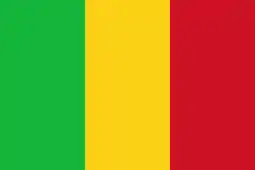 Mali
Mali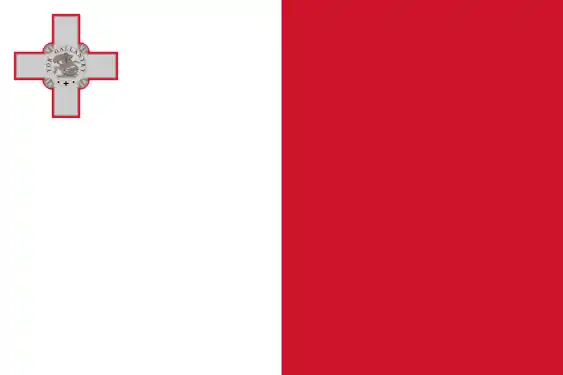 Malta
Malta Marshall Islands
Marshall Islands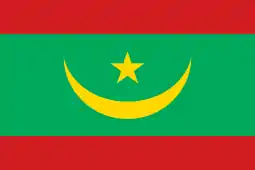 Mauritania
Mauritania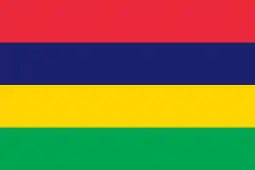 Mauritius
Mauritius Mexico
Mexico Micronesia (Federated States of)
Micronesia (Federated States of)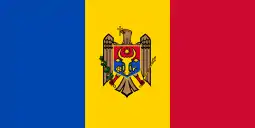 Republic of Moldova
Republic of Moldova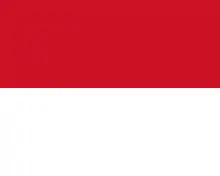 Monaco
Monaco Mongolia
Mongolia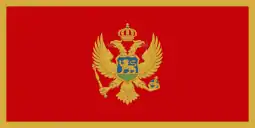 Montenegro
Montenegro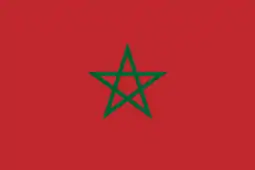 Morocco
Morocco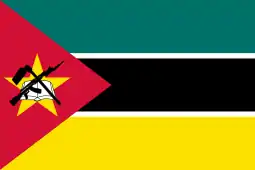 Mozambique
Mozambique Myanmar
Myanmar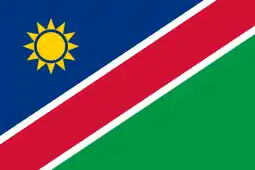 Namibia
Namibia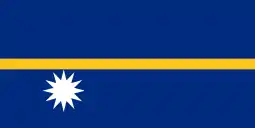 Nauru
Nauru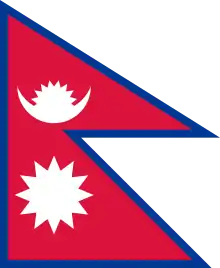 Nepal
Nepal North Macedonia
North Macedonia Netherlands
Netherlands New Zealand
New Zealand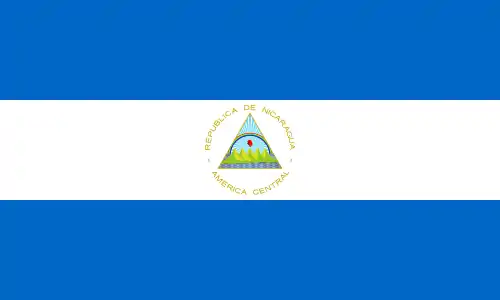 Nicaragua
Nicaragua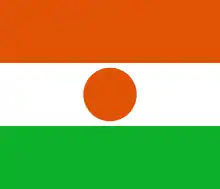 Niger
Niger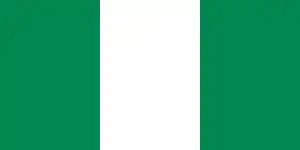 Nigeria
Nigeria Norway
Norway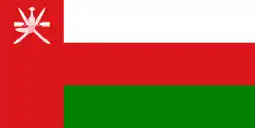 Oman
Oman Pakistan
Pakistan Palau
Palau Palestine
Palestine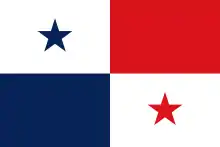 Panama
Panama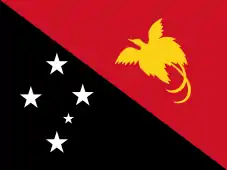 Papua New Guinea
Papua New Guinea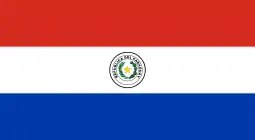 Paraguay
Paraguay.svg.png.webp) Peru
Peru Philippines
Philippines Poland
Poland Portugal
Portugal Qatar
Qatar Romania
Romania Russia
Russia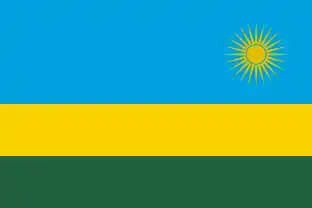 Rwanda
Rwanda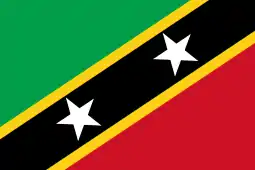 Saint Kitts and Nevis
Saint Kitts and Nevis Saint Lucia
Saint Lucia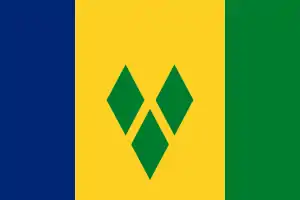 Saint Vincent and the Grenadines
Saint Vincent and the Grenadines Samoa
Samoa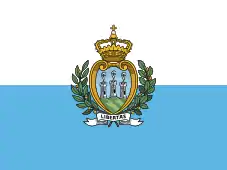 San Marino
San Marino Sao Tome and Principe
Sao Tome and Principe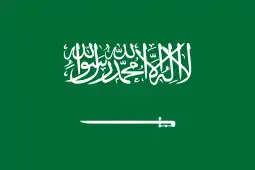 Saudi Arabia
Saudi Arabia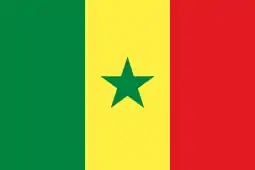 Senegal
Senegal Serbia
Serbia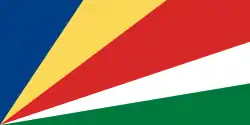 Seychelles
Seychelles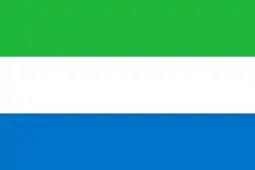 Sierra Leone
Sierra Leone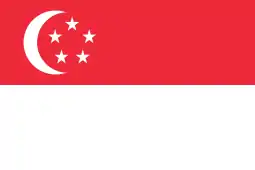 Singapore
Singapore Slovakia
Slovakia Slovenia
Slovenia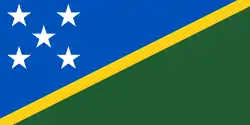 Solomon Islands
Solomon Islands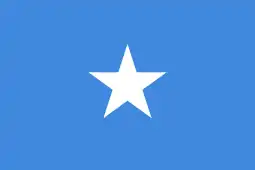 Somalia
Somalia South Africa
South Africa South Sudan
South Sudan Spain
Spain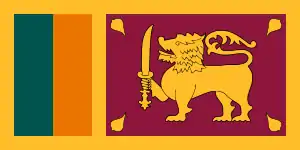 Sri Lanka
Sri Lanka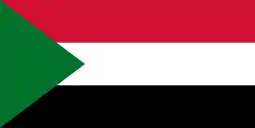 Sudan
Sudan Suriname
Suriname Sweden
Sweden Switzerland
Switzerland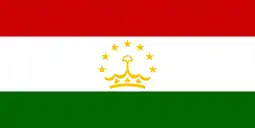 Tajikistan
Tajikistan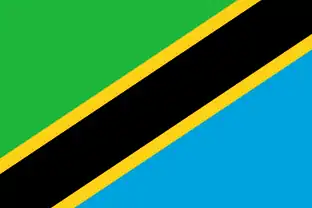 United Republic of Tanzania
United Republic of Tanzania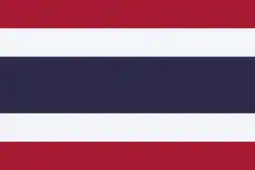 Thailand
Thailand Timor-Leste
Timor-Leste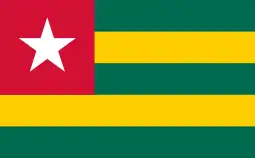 Togo
Togo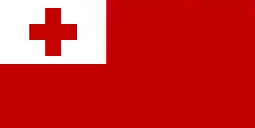 Tonga
Tonga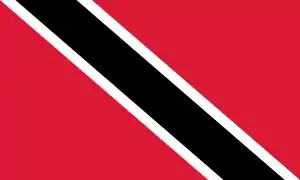 Trinidad and Tobago
Trinidad and Tobago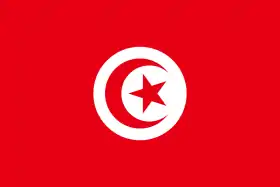 Tunisia
Tunisia Turkey
Turkey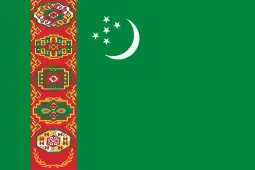 Turkmenistan
Turkmenistan Tuvalu
Tuvalu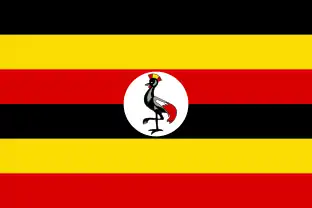 Uganda
Uganda Ukraine
Ukraine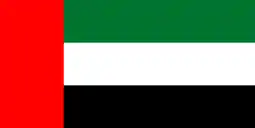 United Arab Emirates
United Arab Emirates United Kingdom
United Kingdom United States
United States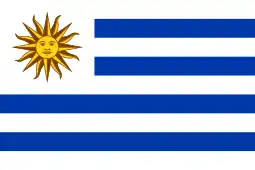 Uruguay
Uruguay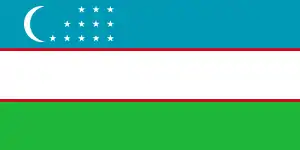 Uzbekistan
Uzbekistan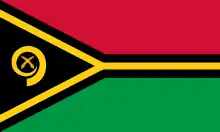 Vanuatu
Vanuatu.svg.png.webp) Venezuela (Bolivarian Republic of)
Venezuela (Bolivarian Republic of)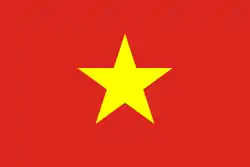 Viet Nam
Viet Nam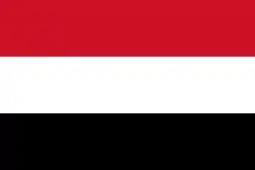 Yemen
Yemen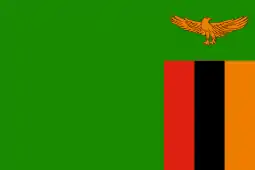 Zambia
Zambia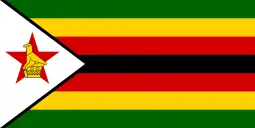 Zimbabwe
Zimbabwe
GFMD Observers:[5]
- ACP Observatory on Migration
- African, Caribbean and Pacific Group of States
- African Development Bank
- African Union
- Association of Southeast Asian Nations
- Asian Development Bank
- Common Market for Eastern and Southern Africa
- Committee on the Protection of the Rights of All Migrant Workers and Members of their Families
- Commonwealth Secretariat (Commonwealth)
- European Union
- Inter-American Conference on Social Security
- Inter-American Development Bank
- Intergovernmental Consultations on Migration, Asylum and Refugees
- International Catholic Migration Commission
- International Center for Migration Policy Development
- International Committee of the Red Cross
- International Federation of Red Cross and Red Crescent Societies
- International Fund for Agricultural Development
- International Labour Organization
- International Organization for Migration
- International Organization of the Francophonie
- Joint Migration and Development Initiative
- League of Arab States
- John D. and Catherine T. MacArthur Foundation
- Office of the High Commissioner for Human Rights
- Office of the Special Representative of the Secretary General
- Organisation for Economic Co-operation and Development
- Organization for Security and Cooperation in Europe
- Organization of Islamic Conference
- Partners in Population and Development (PPD)
- Platform on Disaster Displacement (PDD)
- Regional Conference on Migration (Puebla Process)
- Secretaría General Iberoamericana
- South American Conference on Migration
- Sovereign Military Order of Malta
- United Nations Alliance of Civilizations
- United Nations Children's Fund
- United Nations Conference on Trade and Development
- United Nations Department of Economic and Social Affairs
- United Nations Development Programme
- United Nations Educational, Scientific and Cultural Organization
- United Nations Economic and Social Commission for Asia and the Pacific
- United Nations High Commissioner for Refugees
- United Nations Human Security Unit
- United Nations Institute for Training and Research
- United Nations Office on Drugs and Crime
- United Nations Office at Geneva
- United Nations Population Fund
- United Nations Regional Commissions
- United Nations Special Rapporteur on the Human Rights of Migrants
- UN Women
- Universal Postal Union
- World Bank
- World Health Organization
- The Chair’s Taskforce: gives political, conceptual and operational advice to the Chair, composed of: national government staff from different ministries and departments and a limited number of international advisers sponsored by other governments or international organizations.
- The GFMD Support Unit: created in 2008 to perform administrative, financial and logistical functions; manage GFMD-related data and information; manage internationally contributed funds; and operate the GFMD website and the GFMD Platform for Partnerships (the latter since 2010).
- The Global Network of GFMD Focal Points: created in 2007 to facilitate further dialogue at the national level, as well as networking at the global level between GFMD governments.
- The GFMD government-led Working Groups, established by the Steering Group, which prioritize and follow up on outcomes of previous GFMD meetings and link these to current and future thematic priorities.
- The UN Migration Network, brings together 38 UN entities (as of December 2018) to ensure effective, timely and coordinated system-wide support to Member States. Building on GFMD’s close working relationship with UN entities dealing with migration and development, particularly IOM, the GFMD is poised to coordinate closely with the UN Network on Migration (and its member UN entities) to promote thematic synergy and coherent work planning. While in the past, the primary connection between the GFMD and the UN was through the UN Secretary General’s Special Representative for International Migration (SRSG), it will now be through the UN Network.
Past GFMD Chairs in Office
The host country (Chair-in-Office) assumes responsibility for the preparatory process and the implementation of each Forum. The host government chairs all sessions related to Forum preparations and chairs the Forum. The Chair-in-Office is assisted by the country that organized the previous Forum and the country that will host the following meeting of the Forum.
- Belgium 2007 : Régine de Clercq, former Ambassador for Migration and Asylum Policy of Belgium, who also acted as the Belgian Executive Director of the Global Forum on Migration and Development.
- Philippines 2008: Esteban B. Conejos Jr., Undersecretary for Migrant Workers' Affairs of the Philippine Department of Foreign Affairs. He was the Philippine GFMD focal point and Secretary General of the GFMD National Organizing Committee.
- Greece 2009: Mrs. Theodora Tzakri, Deputy Minister of Interior, Decentralization and E-Governance, chaired the Athens GFMD meeting.
- Mexico 2010: Ambassador Juan Manuel Gómez Robledo, Undersecretary for Multilateral Affairs and Human Rights of the Mexican Ministry of Foreign Affairs initially acted as chair. Mrs. Cecilia Romero Castillo, then Commissioner of INM, acted as Executive Director. On 7 October, she was succeeded by Mr. Salvador Beltrán del Rio Madrid. In late October 2010, Amb Julián Ventura Valero, Undersecretary for North America at the SRE, took over the role of the GFMD Chair after Amb Gómez Robledo.
- Switzerland 2011: Ambassador Eduard Gnesa, Swiss Special Ambassador for International Cooperation in Migration.
- Mauritius 2012: Mr. Ali Mansoor, Financial Secretary of the Ministry of Finance and Economic Development (MOFED) of the Republic of Mauritius.
- Sweden 2013-2014: Mrs. Eva Åkerman Börje, Ambassador, Government Offices of Sweden.
- Turkey 2014-2015: H.E. Feridun Hadi Sinirlioğlu, Minister of Foreign Affairs of Turkey. The preparatory meetings were chaired alternately by Mr. Mehmet Samsar, Director General for Consular Affairs of the Turkish Ministry of Foreign Affairs and Ms. Esen Altug, Deputy Director General for Migration, Asylum and Visa of the Turkish Ministry of Foreign Affairs.
- Bangladesh 2016: H.E. Amb. Md. Shahidul Haque, Foreign Secretary of Bangladesh
- Germany-Morocco 2017-2018: Co-Chaired by Mr. Götz Schmidt-Bremme, Ambassador for the 2017-2018 GFMD at the German Federal Foreign Office and Mr. El Habib Nadir, Secretary General at the Ministry in charge of Moroccans living abroad and migration affairs.
- Ecuador 2019: Mr. Santiago Javier Chavez Pareja, Vice Minister for Human Mobility of Ecuador
Other GFMD Mechanisms
The Platform for Partnerships (PfP)
Since the creation of the GFMD in 2007, there have been continued calls during the annual GFMD meetings for online sharing of good practices using the GFMD website. At the initiative of the Mexican Chair and with the support of the current Swiss Chair the PfP has been created towards the end of 2010 to address this need and to foster new partnerships.
The GFMD Platform for Partnerships[6] (PfP - www.gfmd.org/pfp) is a tool to facilitate exchange and showcase projects, programs and policies that are undertaken by governments in the field of Migration and Development (M&D), and which are related to GFMD themes, debates and outcomes. The PfP is a four-pronged tool:
- for showcasing existing (or past) practices (M&D Policy and Practice Database)
- for fostering new projects and partnerships (M&D Calls for Action)
- for facilitating communication and exchange (M&D Networking)
- for showcasing products and policy tools (M&D Policy Tools)
External links
References and notes
- "Global Forum on Migration and Development (GFMD)". gfmd.org. Retrieved 2019-04-11.
- "Background and Objectives | Global Forum on Migration and Development". gfmd.org. Retrieved 2019-04-11.
- "GFMD Steering Group".
- "GFMD Focal Points Directory". Archived from the original on 2014-08-12. Retrieved 2014-07-17.
- "GFMD List of Observers".
- "Platform For Partnerships (PFP) | Global Forum on Migration and Development". www.gfmd.org. Retrieved 2020-06-03.